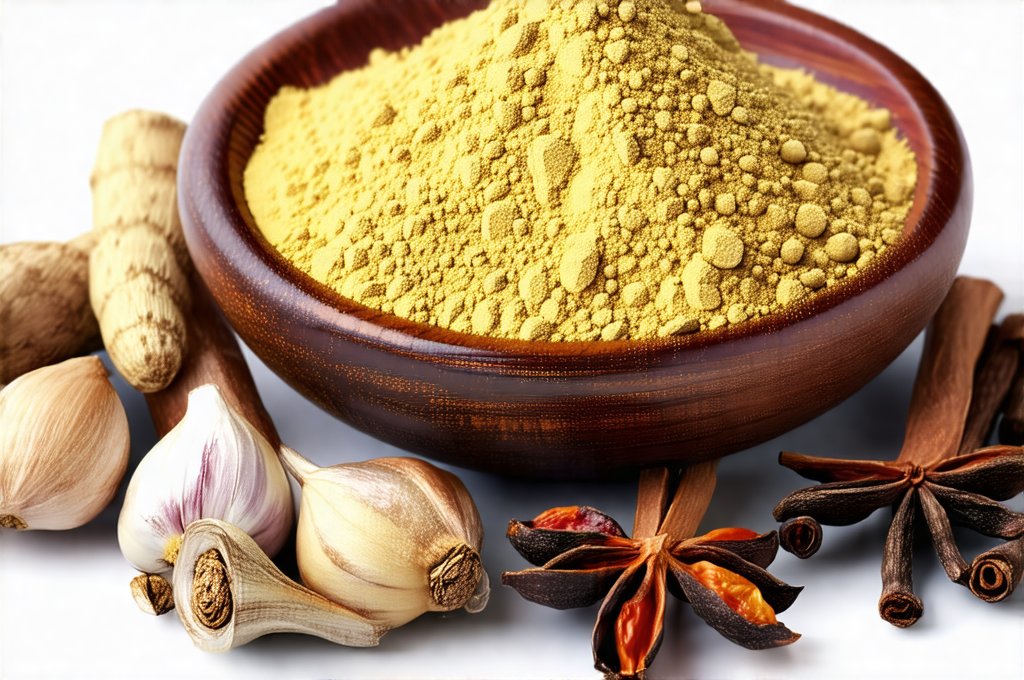Our digestive systems are often taken for granted until something goes wrong. Modern diets, stress levels, and lifestyle factors can significantly impact our gut health, leading to discomfort, bloating, and even long-term issues. While a holistic approach including mindful eating, adequate hydration, and stress management is crucial, the seemingly small act of incorporating specific seasoning blends into your cooking can be a powerful way to proactively support digestive resilience. These aren’t about quick fixes; they’re about building a foundation for consistent gut comfort and optimal nutrient absorption.
The connection between flavor and function in food is profound. Many spices and herbs traditionally used in cuisine around the world weren’t simply chosen for their taste – they were recognized for their medicinal properties, including those that aided digestion. Think of ginger in Asian cooking or caraway seeds in German cuisine; these weren’t accidental additions. Today, we can leverage this ancient wisdom by thoughtfully crafting seasoning blends that go beyond enhancing flavor and actively support a healthy digestive system. This is about working with your body, not masking symptoms with temporary solutions. You might also find helpful tips in daily habits that support overall gut health.
Warming & Carminative Blends
Warming spices are generally those that create a feeling of warmth in the body, often associated with increased circulation and improved digestion. Carminatives, on the other hand, specifically help to reduce gas and bloating. Combining these creates incredibly supportive blends for individuals prone to digestive discomfort or those navigating conditions like IBS. The beauty lies in their versatility – they can be added to soups, stews, roasted vegetables, even teas! A core principle here is gentle stimulation rather than harsh intervention.
These blends aren’t about overpowering a dish but enhancing it with subtle notes that aid digestion. Consider the difference between black pepper and ginger; both are warming, but ginger has additional anti-inflammatory properties and a gentler effect on the stomach. When building these blends, quality matters significantly. Opt for organic spices whenever possible to minimize exposure to pesticides and ensure maximum potency. Freshly ground spices offer even greater flavor and aromatic benefits. Understanding vegetables that support your digestion can also be a helpful complement to seasoning blends.
A simple starting point is a blend of equal parts dried ginger, fennel seeds, and cardamom. This combination addresses bloating, reduces inflammation, and offers a pleasant aroma. You can further customize it by adding a pinch of cinnamon for warmth or cloves for added depth. Remember to start small – a teaspoon or less per serving is often sufficient. Experimentation is key to finding what resonates with your body.
Soothing & Anti-Inflammatory Blends
Many digestive issues stem from inflammation within the gut. Chronic inflammation can disrupt the delicate balance of the microbiome, leading to leaky gut syndrome and various other problems. Building seasoning blends around anti-inflammatory herbs and spices is a powerful way to proactively address this issue. This isn’t about eliminating all inflammation – some inflammation is necessary for immune function – but rather about mitigating chronic low-grade inflammation that contributes to digestive distress.
Turmeric, with its active compound curcumin, is a star player in anti-inflammatory blends. However, curcumin’s bioavailability is limited, meaning the body doesn’t absorb it easily. Pairing turmeric with black pepper significantly enhances absorption, making it more effective. Other key ingredients include rosemary (rich in antioxidants), chamomile (soothing to the gut lining), and licorice root (traditionally used for digestive support – use cautiously if you have high blood pressure). You can also explore how foods help restore a healthy pH balance in your gut.
A blend of turmeric, black pepper, dried chamomile flowers, and a touch of ginger offers a comprehensive approach to soothing inflammation. This can be added to roasted chicken, vegetable curries, or even sprinkled on eggs. It’s important to note that individual sensitivities vary; some individuals may find certain herbs or spices irritating. Always listen to your body and adjust the blend accordingly. Can antioxidants support digestive recovery is also worth researching for enhanced healing potential.
Building Your Own Blends: A Step-by-Step Guide
Creating personalized seasoning blends is a rewarding experience that allows you to tailor flavors to your preferences and address specific digestive needs. Here’s a simple guide to get you started:
- Identify Your Needs: Are you primarily concerned with bloating, inflammation, or overall digestion? This will guide your ingredient choices.
- Choose Your Base: Start with a foundation of commonly used spices like cumin, coriander, or paprika. These provide bulk and familiar flavors.
- Add Functional Ingredients: Incorporate warming spices (ginger, cinnamon), carminatives (fennel, anise), anti-inflammatory herbs (turmeric, rosemary), or soothing elements (chamomile, licorice root).
- Balance the Flavors: Experiment with different ratios to achieve a harmonious blend. Consider adding a pinch of salt to enhance flavors.
- Grind Fresh When Possible: Whole spices retain their potency longer and offer a more intense flavor. Use a spice grinder or mortar and pestle.
Remember, there is no one-size-fits-all solution. Experimentation is key! Start with small batches and gradually adjust the ingredients until you find what works best for you. Don’t be afraid to research the properties of different spices and herbs to better understand their potential benefits. Small wins that matter can also help build confidence in your digestive journey.
The Importance of Quality & Sourcing
The quality of your spices significantly impacts both flavor and potency. Mass-produced spices often sit on shelves for extended periods, losing their essential oils and aroma. Freshness is paramount when it comes to maximizing the digestive benefits of these blends. Look for organic options whenever possible to minimize exposure to pesticides and herbicides. Sourcing from reputable suppliers who prioritize quality control ensures you’re getting a genuine product.
Consider buying whole spices and grinding them yourself just before use. This preserves their volatile oils, which are responsible for both flavor and medicinal properties. Storing spices in airtight containers away from heat and light helps maintain their freshness. Avoid buying spices in bulk unless you know you’ll use them quickly. Over time, even high-quality spices lose potency.
Listening to Your Body & Avoiding Irritants
While these seasoning blends can be incredibly supportive for digestive health, it’s crucial to listen to your body and identify any potential irritants. Food sensitivities are common, and what works well for one person may not work for another. Pay attention to how you feel after consuming different spices or herbs. If you experience bloating, gas, or other discomfort, consider eliminating that ingredient from your blend.
Certain spices can be particularly irritating for individuals with specific conditions like acid reflux or ulcerative colitis. For example, chili peppers and garlic, while flavorful, can exacerbate symptoms in some people. It’s also important to avoid excessive amounts of any spice, as even beneficial ingredients can cause digestive upset if consumed in large quantities. Gradual introduction is key – start with small amounts and slowly increase as tolerated. Ultimately, building a resilient digestive system is about finding what nourishes your body best. Common additives that cause issues are also worth being aware of when choosing ingredients.


















